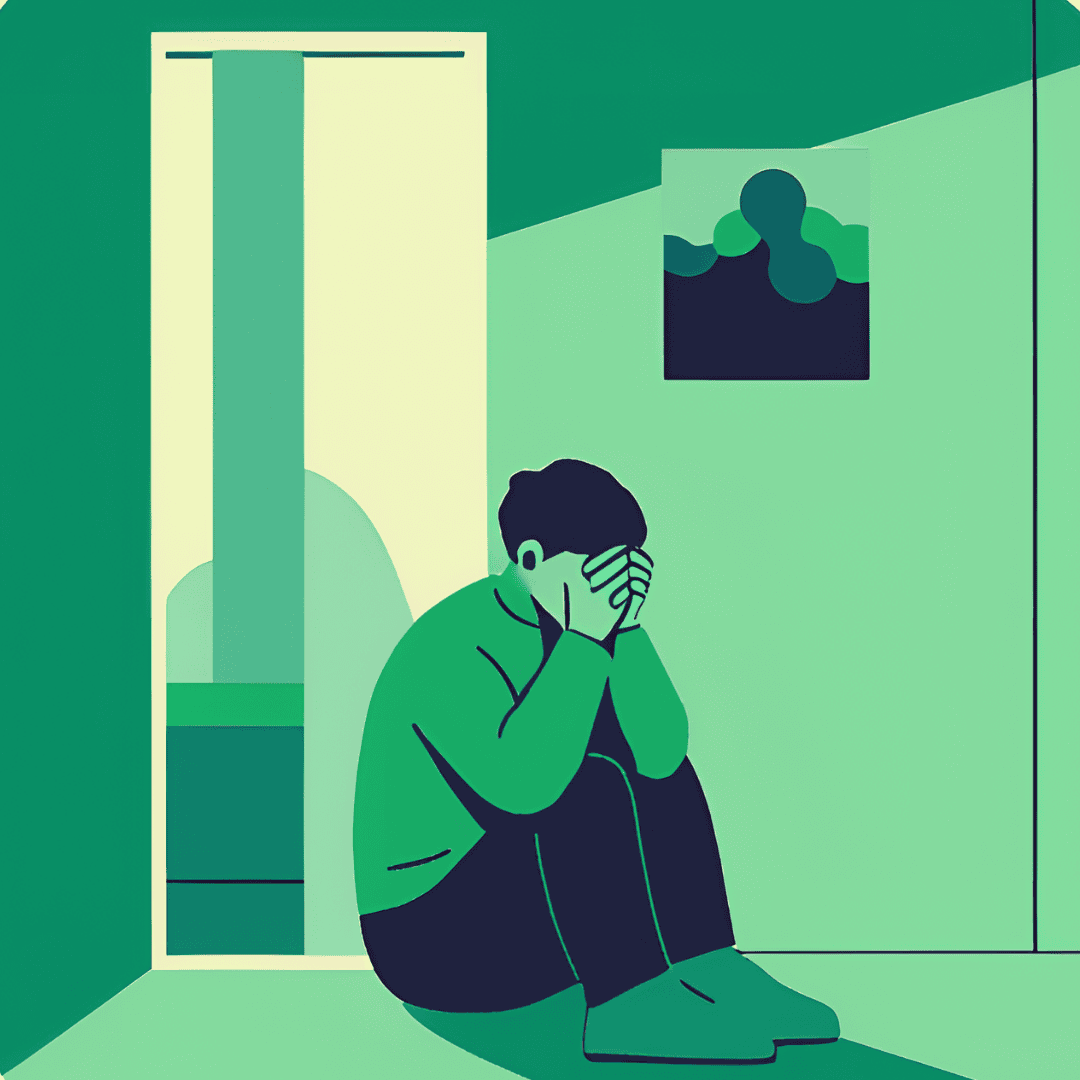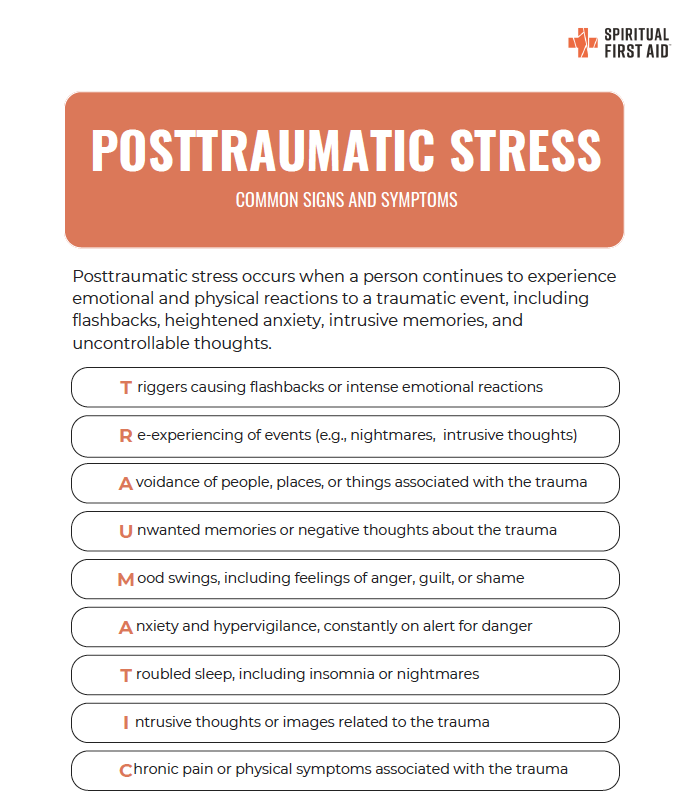
POST-TRAUMATIC STRESS DISORDER: AN OVERVIEW OF ITS SYMPTOMS AND FACT SHEET
Post-Traumatic Stress Disorder (PTSD) is a serious mental health condition that can develop after an individual has experienced or witnessed a traumatic event. This traumatic event, in the context of PTSD, refers to any experience that is overwhelmingly distressing, threatening, or life-altering, and that leaves a lasting impact on an individual’s psychological and emotional well-being. Traumatic events typically involve situations where the person feels a sense of helplessness, intense fear, or horror, and may involve real or perceived threats to their life, safety, or well-being.
Common examples of traumatic events that can lead to PTSD include: being a victim of physical violence or sexual assault, witnessing violence or death of others, experiencing childhood abuse / trauma, surviving a severe accident such as a car crash or surviving a natural disaster, and more.
PTSD is characterized by a range of symptoms that can disrupt daily life, relationships, and overall well-being. Below, we explore the common symptoms associated with PTSD, providing insight into the challenges faced by those living with this condition.
Triggers Causing Flashbacks or Intense Emotional Reactions
One of the most distressing aspects of PTSD is the presence of triggers—specific sounds, sights, smells, or situations—that can cause the individual to relive the trauma. These triggers can lead to flashbacks, where the person feels as if they are back in the traumatic situation, or intense emotional reactions such as panic, fear, or anger. These experiences are often overwhelming and can make it difficult for individuals to feel safe or in control.
Re-Experiencing of Events: Nightmares and Intrusive Thoughts
A hallmark of PTSD is the re-experiencing of the traumatic event through nightmares or intrusive thoughts. Nightmares may vividly replay the trauma, causing disturbed sleep and fear of going to bed. Intrusive thoughts, on the other hand, can occur at any time, disrupting daily activities and concentration. These thoughts and dreams are often involuntary, leaving the individual feeling haunted by their past experiences.
Avoidance of People, Places, or Things Associated with the Trauma
In an effort to protect themselves from further distress, individuals with PTSD may begin to avoid anything that reminds them of the trauma. This can include certain people, places, or even specific activities. For example, a person who survived a car accident might avoid driving or even being in a car. While avoidance might provide temporary relief, it often leads to increased isolation and can prevent the person from fully healing.
Unwanted Memories or Negative Thoughts About the Trauma
Unwanted memories of the traumatic event can frequently intrude into a person’s thoughts, making it difficult to focus on anything else. These memories may be accompanied by negative thoughts or beliefs about the trauma, such as self-blame, guilt, or feelings of worthlessness. These cognitive distortions can perpetuate a cycle of negative thinking, making it harder for the individual to move forward.
Mood Swings: Anger, Guilt, and Shame
PTSD can also bring about significant mood swings, with individuals experiencing intense feelings of anger, guilt, or shame. Anger might be directed outward, resulting in irritability or aggression, or inward, leading to self-destructive behaviors. Guilt and shame are also common, particularly if the person blames themselves for the trauma or believes they could have done something to prevent it.
Anxiety and Hyper-Vigilance: Constantly on Alert for Danger
A pervasive sense of anxiety and hyper-vigilance is another core symptom of PTSD. Individuals may feel as though they are constantly on alert, always expecting something bad to happen. This heightened state of awareness, often referred to as “hyper-arousal,” can lead to difficulty relaxing, increased startle responses, and a general sense of unease.
Troubled Sleep: Insomnia and Nightmares
Sleep disturbances are common in PTSD, with many individuals experiencing insomnia due to anxiety or fear of nightmares. The trauma-related nightmares can be so vivid and distressing that the individual becomes afraid to sleep, leading to chronic sleep deprivation. This lack of rest can exacerbate other symptoms, including irritability and difficulty concentrating.
Intrusive Thoughts or Images Related to the Trauma
Intrusive thoughts and images are a persistent symptom of PTSD, often emerging without warning and causing significant distress. These thoughts can take the form of vivid images, sounds, or even smells associated with the trauma. They are typically unwelcome and uncontrollable, making it difficult for the individual to focus on anything else.
Chronic Pain or Physical Symptoms Associated with the Trauma
PTSD is not just a psychological condition; it can also manifest in physical ways. Many individuals with PTSD experience chronic pain or other physical symptoms that are either directly related to the trauma or are a result of the prolonged stress that the body is under. These symptoms can include headaches, gastrointestinal issues, and muscle tension, further complicating the person’s recovery process.
Post-Traumatic Stress Disorder is a complex and debilitating condition that affects both the mind and body. The symptoms of PTSD, such as flashbacks, avoidance, intrusive thoughts, and chronic pain, can significantly disrupt a person’s life, making it difficult to feel safe, connected, or in control. Recognizing the symptoms of PTSD is an important step toward healing, and alongside professional treatment, seeking God in prayer and knowing He is with you can provide solace. By leaning on Christ, experiencing His unconditional love, seeking His guidance, and trusting in His plan, we can find strength to face our trauma and move forward with hope. Through God’s grace, healing is possible, and we can find peace that transcends even the most difficult experiences. In Psalm 34:18, we are reminded, “The Lord is close to the brokenhearted and saves those who are crushed in spirit.”
Check out the Spiritual First Aid Fact Sheet below regarding Post-Traumatic Stress Disorder for quick reference.

Enjoyed our blogpost? Subscribe to our newsletter for more resources on mental health and integrating the Gospel message in your healing journey.
If you found our resources useful, please consider donating to Oak Health Foundation, which is a 501(3)c nonprofit dedicated to providing resources regarding holistic mental healthcare and subsidized treatment for those in need.




